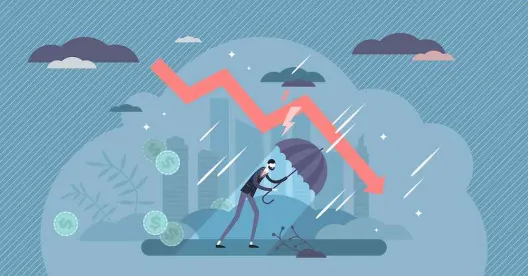As the conflict in Ukraine enters its second month and the list of sanctions and restrictions imposed by the United States, the European Union and other countries increases to punish Russia, the effects of the sanctions will become more apparent and are expected to have profound and lasting effects on a large number of industries. These sanctions and other restrictions on the flow of capital will also have a long-term impact on Russian investments all over the world, as sanctions are placed on a large number of Russian financial institutions, companies, as well as certain Russian citizens close to Putin’s regime. The recent filing of the chapter 11 case of the New York-based company Buyk Corp. (Buyk) is a case on point.
On March 17, 2022, Buyk, a mobile app grocery delivery service operating in New York and Chicago, filed for bankruptcy protection in the Bankruptcy Court for the Southern District of New York. Buyk launched its delivery services in Manhattan in September 2021 and in Chicago in November 2021, with the promise of delivering groceries to consumers within 15 minutes. Its business model used local delivery-only dark stores located around different neighborhoods to ensure delivery within minutes of an order. This business model was not new and numerous ultra-fast delivery firms already existed in the New York market – as well as in other major metropolitan areas in the United States – when Buyk launched, with new entrants regularly entering similar markets. Buyk, however, was a well-funded start-up since its inception.
Buyk was founded by Rodion Shishkov and Viacheslav Bocharov, both Russian citizens who each owned 46.55% of Buyk’s shares. According to press reports, these founders also partially owned a Russian fast-grocery store called “Samokat,” one of the largest instant grocery-delivery companies in Russia. Buyk raised $46 million in seed funding for its launch in the United States and, as of the petition date, the Russian-based investors had provided total seed funding of $63.5 million in convertible notes and $11 million in unsecured loans. Prior to its bankruptcy filing, Buyk had 39 stores in the New York and the Chicago metropolitan areas and was planning to open another 100 stores in 2022. Buyk had relied on cash infusions by its founders to operate and fund its expected expansion and was in the process of a planned equity raise when the conflict in Ukraine began. Specifically, Buyk was seeking new equity funding in the amount of $250 million, including from its founders. However, with tensions mounting between Russia and Ukraine, Buyk pivoted to seek an equity raise from investors in the United States, including from numerous institutional investors and potential strategic partners, such as DoorDash. When the hostilities began, according to the pleadings filed in its bankruptcy case, Buyk was “confronted with an existential and, ultimately, fatal crisis” and “any chance of obtaining equity or debt investment from the prominent institutional investors which had been interested in funding the Debtor was now lost.”
In a matter of days, after the company’s access to funding was abruptly restricted, Buyk had no choice but to permanently shut down its operations and lay off approximately 900 employees. Buyk’s management explained that “as a result of the Ukrainian crisis and the Debtor’s attendant inability to receive funding from its initial investors and/or any other parties in a sufficient amount to continue to operate as a going concern while seeking a comprehensive capital raise or a merger or sale transaction, the Debtor’s fiduciaries determined to cause the Debtor to commence this Chapter 11 case in order to effectuate an orderly sale of its assets.” The company is now in the process of selling its assets, including its perishable inventory, and seeks to run a compressed sale process within 60 days and to ultimately file a plan of liquidation. It also sought approval of $6.5 million in DIP financing, to pay employees’ salaries and repay a prepetition bridge loan in the amount of $4 million.
While Buyk was funded by Russian-based investors, it bears noting that while the investors were not themselves sanctioned individuals, they were not able to transfer funds out of Russia, according to the company. When Buyk tried to pivot to raise equity funding in the United States, any possible investments by institutional investors failed to materialize after the hostilities in Ukraine began. Thus, even if the Russian funders were not themselves sanctioned individuals, the Ukraine crisis cut off both internal and external funding opportunities and led to Buyk’s precipitous collapse.
While the full effect and scope of the sanctions and restrictions imposed on Russia remains unknown at this point in time, there is little doubt that a large number of companies in numerous sectors with ties to Russia or Russian investors will start to feel the sting of the sanctions and restrictions, with sometimes abrupt and swift negative consequences. The Buyk chapter 11 case is likely just the first, but not the last, chapter 11 case to be filed by Russian-affiliated companies as a direct result of the conflict in Ukraine and the resulting sanctions.




 />i
/>i

